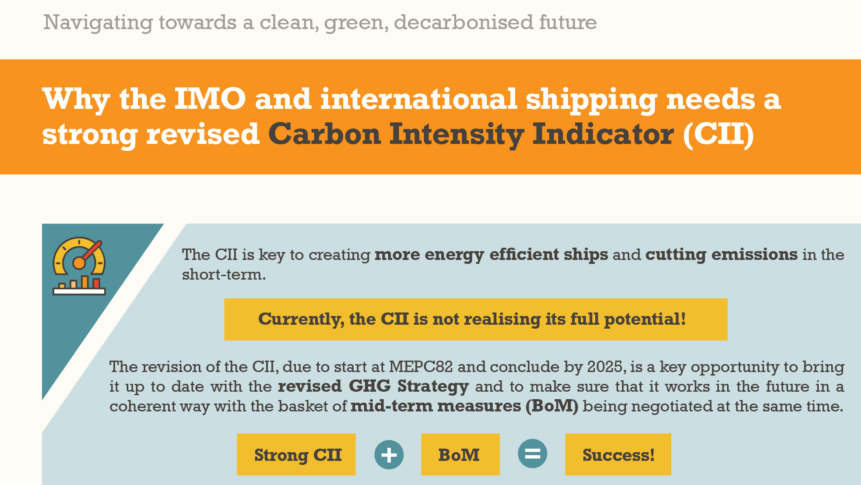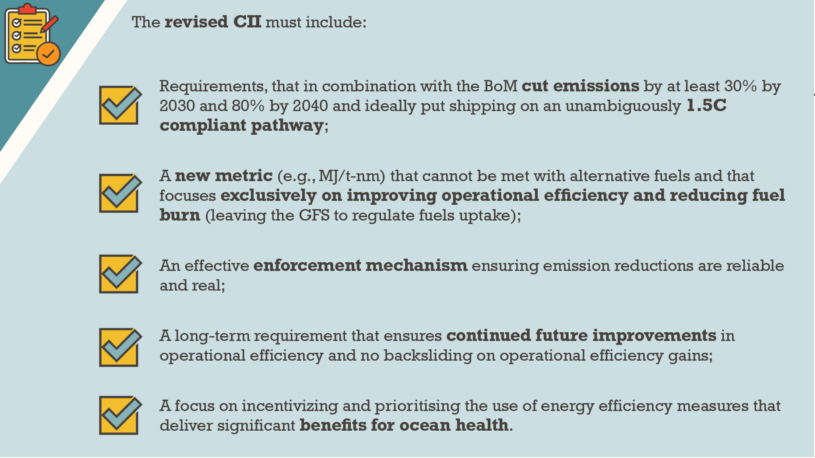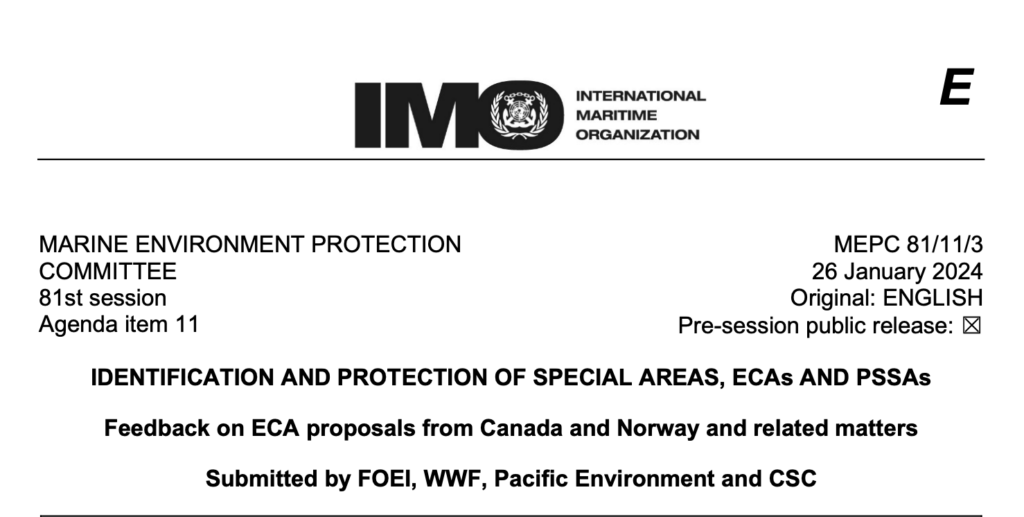News
London, 22 March, 2024:- As this week’s meeting of the International Maritime Organization’s Marine Environment Protection Committee (MEPC 81, March 18-22) winds down, the Clean Shipping Coalition welcomed the growing support for a greenhouse gas (GHG) emissions levy, but warned that IMO member states must also maintain focus on other key issues such as the global fuel standard (GFS) and the improvement of how energy is used in ships via the carbon intensity indicator (CII).
The Clean Shipping Coalition is calling on the IMO to urgently step up ship climate action by improving its Carbon Intensity Indicator (CII), which would quantify and raise ship efficiency while fostering greater transparency and driving deep and lasting reductions in pollution.
The revision of the CII is a key opportunity to bring it up to date with the revised GHG Strategy and to make sure that it works in the future in a coherent way with the basket of mid-term measures (BoM) being negotiated at the same time.
Publications
The CII is key to creating more energy efficient ships and cutting emissions in the short-term. Currently, the CII is not realising its full potential! The revision of the CII, due to start at MEPC82 and conclude by 2025, is a key opportunity to bring it up to date with the revised GHG Strategy and […]



